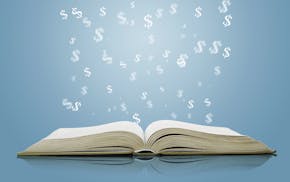During the past year, with its deep recession and historic stock market declines, who hasn't yearned for some guidance on money matters? Fortunately, four Minnesotans spent a portion of that tumultuous time explaining -- in plain English -- how to manage your money in good times and bad.
Tim Munkeby, founder of Munkeby Financial in Deephaven, started his work life as an English teacher. He is now returning to his role as an educator to teach high school and college students about healthy money habits. He wrote the book, "If I Had A Million Dollars: How to Achieve Financial Independence Before Your Parents Do!"
Q You've been speaking to young adults for years. Why did you write this book now?
A When I realized not only the debt but the deficit's increasing, and the burden that's going to place on today's young adults, I said "I've got to get this book out." That's why it became my mission, because -- excuse my language -- they're getting screwed. And they're the first generation predicted to be worse off than the previous. And what's happening now is definitely increasing the burden.
Q Can you share three good money habits young adults need to become financially secure?
A Live within your means, which means stay out of debt. Pay yourself first and regularly -- at least 10 percent of your salary. Start now. Because the only advantage you have is time.
Kevin Sale, a certified financial planner and founder of Sailor Financial, a Bloomington-based financial planning firm that offers fee-only, as needed, money advice, authored two chapters of "Investing in an Uncertain Economy for Dummies." The book was written by advisers who are part of the Garrett Planning Network, a group of independent advisers known for their hourly financial planning approach.
QWhy did you contribute to this book?
AAt one point I was a journalism major in college. I like to write. It's nice to contribute to a resource for people that I feel good about and covers a lot of different areas.
QYou wrote two chapters for the book: one about taxable accounts such as brokerage and savings accounts and the other on individual retirement accounts, or IRAs. What is the benefit of these accounts in uncertain times?
AWith the taxable accounts, you're getting flexibility. That's a good place to put some money when you're trying to build up an emergency reserve and you're looking not to be restricted. With the Roth IRA, you can withdraw your contributions at any time without penalty, so it's a nice, flexible account .You can at least put the money in a cash account in a Roth IRA and not invest it for the long-term until things clear up, to take advantage of this year's contribution limit ($5,000 or $6,000 for investors 50 or older).
Jeff McComas of Woodbury and Tom Romens of St. Paul aren't financial professionals. They're do-it-yourselfers who subscribe to the index funds philosophy of Vanguard Group founder John Bogle. As active participants in the Twin Cities chapter of Bogleheads and frequent contributors to the active Bogleheads.org Web forum, they each applied to write a chapter of the just-released "Bogleheads' Guide to Retirement Planning." Proceeds from the book will go to the National Constitution Center, a museum devoted to the U.S. Constitution, where Bogle is chairman emeritus.
McComas, a 39-year-old engineer, wrote the chapter on early retirement, which he's planning for himself. Romens, who works for a state agency, wrote the chapter on the retirement planning process.
QJeff, what's unique about this book?
AUnlike many personal finance books, we're not out to sell anything, but instead we are trying to empower people to help them figure out how to live a financially rewarding life. It's a commonsense book full of advice and stories that everyone can relate to and do not need to be an MBA or financial adviser to understand.
QMost workers like the sound of early retirement. What are a couple of the most important steps for making that a reality?
AFirst, prepare by building up a retirement account and after-tax account balances and save like crazy. We target saving at 20 to 25 percent of income. Then, try to understand both your annual retired budget needs and your expected early retirement lifestyle.
QEarly retirement sounds so 1999. Is early retirement even a possibility for anyone anymore?
A Yes, it is, as long as you have been saving and have an appropriate amount of bonds for your age -- your age in bonds [as a percentage of your total investments] is a good rule of thumb to start with. You should be able to weather the short-term ups and downs in the stock market.
QTom, what do you consider most important when developing a retirement plan?
APlanning for the future involves trade-offs; you have to be willing to give up something today in return for your vision of a life tomorrow. Part of your plan involves introspection about what makes you happy. Are you interested in self improvement, service to others, recreation, contemplation? Your financial plan should support your life plan. Failing to link your retirement financing to your life plan might result in planning for a future you cannot afford. You need to establish good savings and spending habits while you are young, understand your tolerance for taking financial risk, create a written plan with some achievable milestones and stick with it.
QDoes your advice for retirement planning change at all given the year we've had?
ANo. One of the things I propose is to annually check your progress toward your goals and be flexible enough to change your spending and savings habits.
Where have you turned for financial advice during this tumultuous year? Tell Kara McGuire • 612-673-7293 or kmcguire@startribune.com. Follow her on Twitter: www.twitter.com/kablog.


